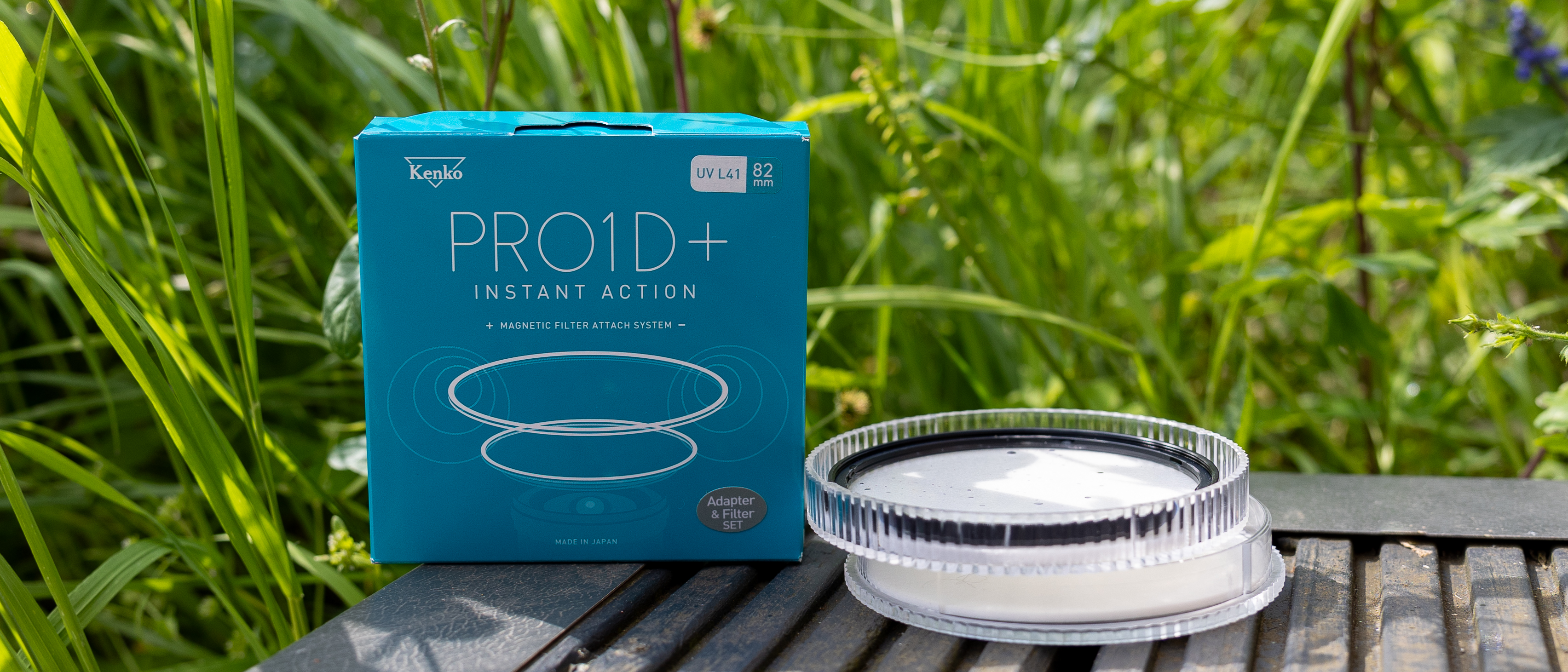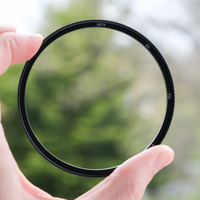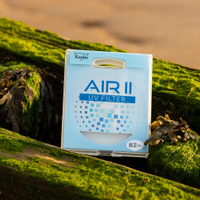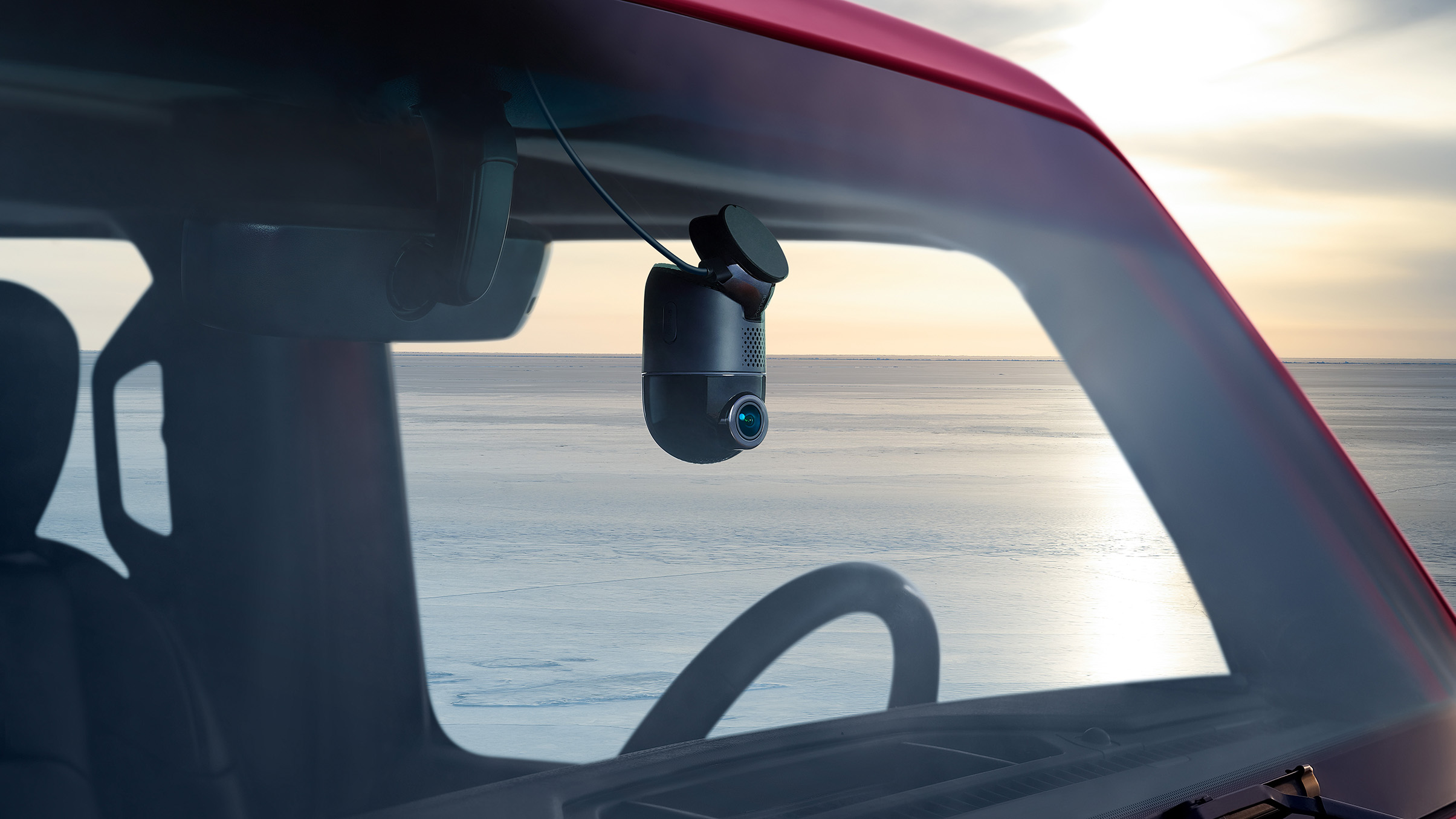Digital Camera World Verdict
The Kenko Pro1D+ UV filter is easy to use and well-priced, with anti-reflection coatings and a water-repellent surface that I found to be a bonus for outdoor photography. The magnetic design makes the filter quick to remove, and it doesn't rattle in the adapter like some. But I found it frustrating that it would sometimes slip off the lens when I had the camera in my kitbag, making its protection somewhat useless for storage. If you have other Pro1D+ filters then this UV filter makes sense, but if quick removal isn't something you particularly need, I'd opt for a traditional screw-in UV filter instead.
Pros
- +
Easy to take on and off
- +
Doesn't affect image quality
- +
Fits underneath the lens cap
Cons
- -
Filters rattle in carry case
- -
Magnet could be stronger
- -
82mm is biggest diameter size
Why you can trust Digital Camera World
I've always used UV filters as one of the best protection filters for lenses, as it's much cheaper to replace a scuffed, scratched, or dented filter than a premium bit of glass. Accidents happen, and I rely on a UV filter to give my optics a layer of protection. Unlike just using a clear filter, I also like that they block ultraviolet light waves and reduce haziness in images.
UV filters vary in price, depending on their optical quality and coatings. But most share a similar circular design which either screws onto the lens ring or attaches via a magnetic system. Kenko's Pro1D+ UV filter does the latter and is part of the company's Pro1D+ Instant action filter range (which includes a circular polarizer, variable neutral density filter plus polarizer combo, and even close-up filters). The magnet-attaching system means you can swap the filters almost instantly, which might be particularly important to landscape photographers working in changing light.
I've significantly reduced the number of lenses I use over the past few years, and my daily workhorse is now the Canon RF 24-70mm f/2.8L IS USM. Given that this lens is more expensive than my camera, I wondered whether it was time to upgrade my decent but slightly basic Urth UV filter. I wanted to see whether spending more on a UV filter could improve the image quality and whether Kenko's "Instant Action" magnetic filter system would allow me to switch between filters more easily in reality. Here's what I made of the Kenko PRO1D+ Instant Action UV Set (in 82mm on my Canon lens).
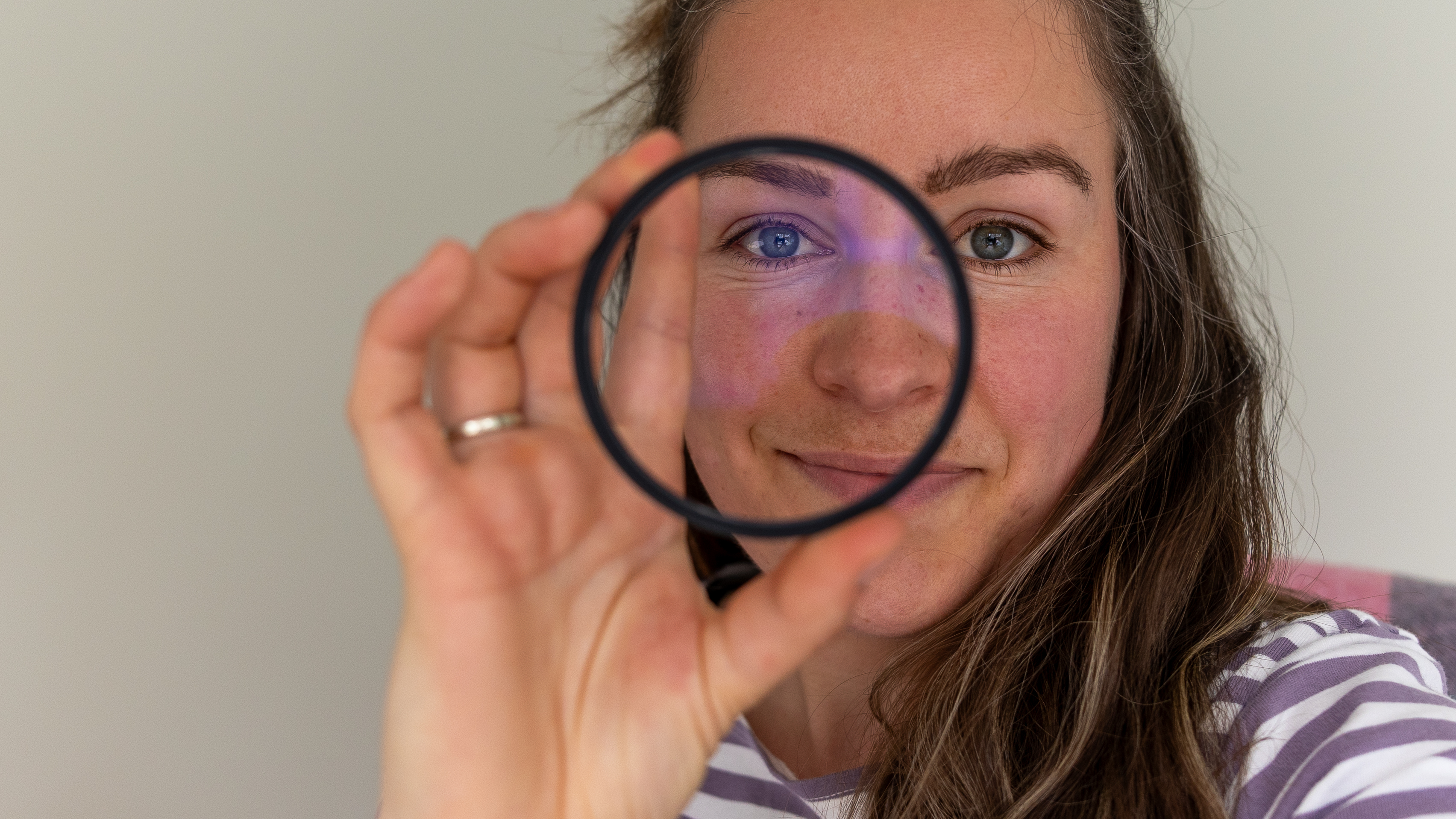
Kenko Pro1D+ UV filter: Specification
| Filter type | Ultraviolet UV / Protector |
| Coating | Anti-stain, water repellent, anti-reflection |
| Available sizes (mm) | 49, 52, 55, 58, 62, 67, 72, 77, 82 |
| Frame material | Aluminum |
Kenko Pro1D+ UV filter: Price
The Kenko Pro1D+ UV filter is available in nine different diameters between 49 mm and 82 mm, with the smaller sizes being cheaper. Urth offers UV filters up to 95mm, as does Canon with its clear protection filters (although these are expensive) so it's a shame that Kenko hasn't made its Pro1D+ UV filter available for the very widest lenses.
I couldn't find the filters on sale without the adapter, which is slightly annoying as I have several Pro1D+ filter sets and therefore have several magnetic filter adapters I don't need, as I only mount one at a time. Strangely though, you can buy the adapter ring on its own (from £16 here in the UK) – perhaps if you lose or damage it.
The price of the Pro1D+ UV is about average as far as UV filters go, and they're a hard product category to judge value in as they're so nebulous. But I know this; Kenko's magnetic filter range doesn't represent a basic, cheap option, but you're not stretching to a premium piece of glass here either. It costs just under double my current screw-on Urth UV filter, and given the magnetic design and inclusion of the adapter in the box, this feels reasonable.
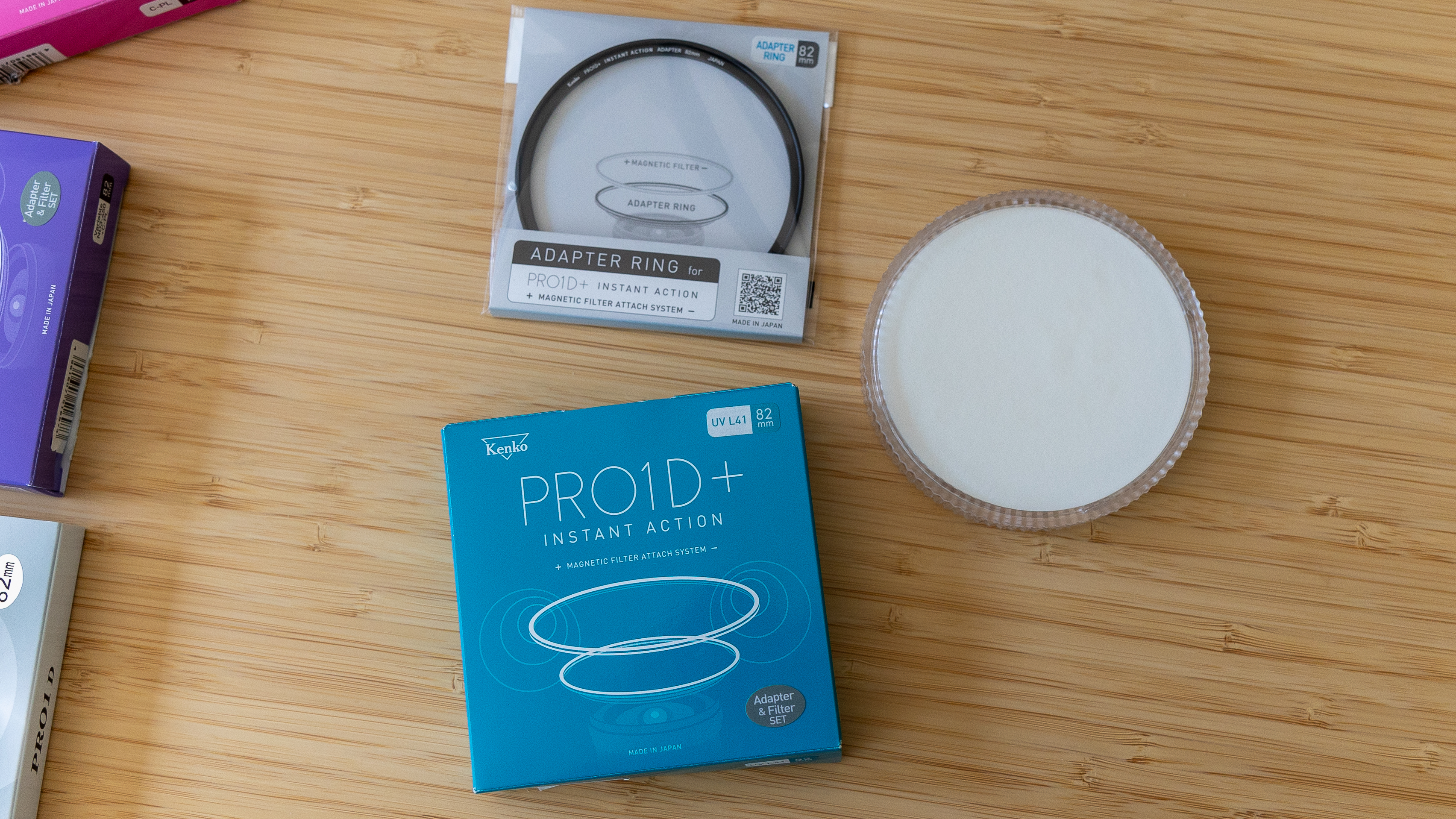
Kenko Pro1D+ UV filter: Design & Handling
Like other Kenko Pro1D+ products, the UV filter comes packaged in a bright cardboard box – this time turquoise – and inside, the circular filter is protected by a round, plastic container. You also get a sealed "Instant Action adapter" of the same thread size which gets screwed onto the lens first and can then be used with any filter in the Pro1D+ range.
I screwed the adapter ring onto my Canon RF 24-70mm f/2.8L IS USM lens in a few seconds, and then simply plopped the UV filter on top where it attracted neatly onto the front. So far, so good, regarding the "Instant Action" Name. I've also tested the Kenko Pro1D+ CPL filter, and I was happy to find that the UV filter is machined to fit much more closely within the adapter than Kenko's magnetic polarizer, meaning it doesn't rattle around at all during use. I was confident that it wasn't going to fall off or move during shooting at any angle.
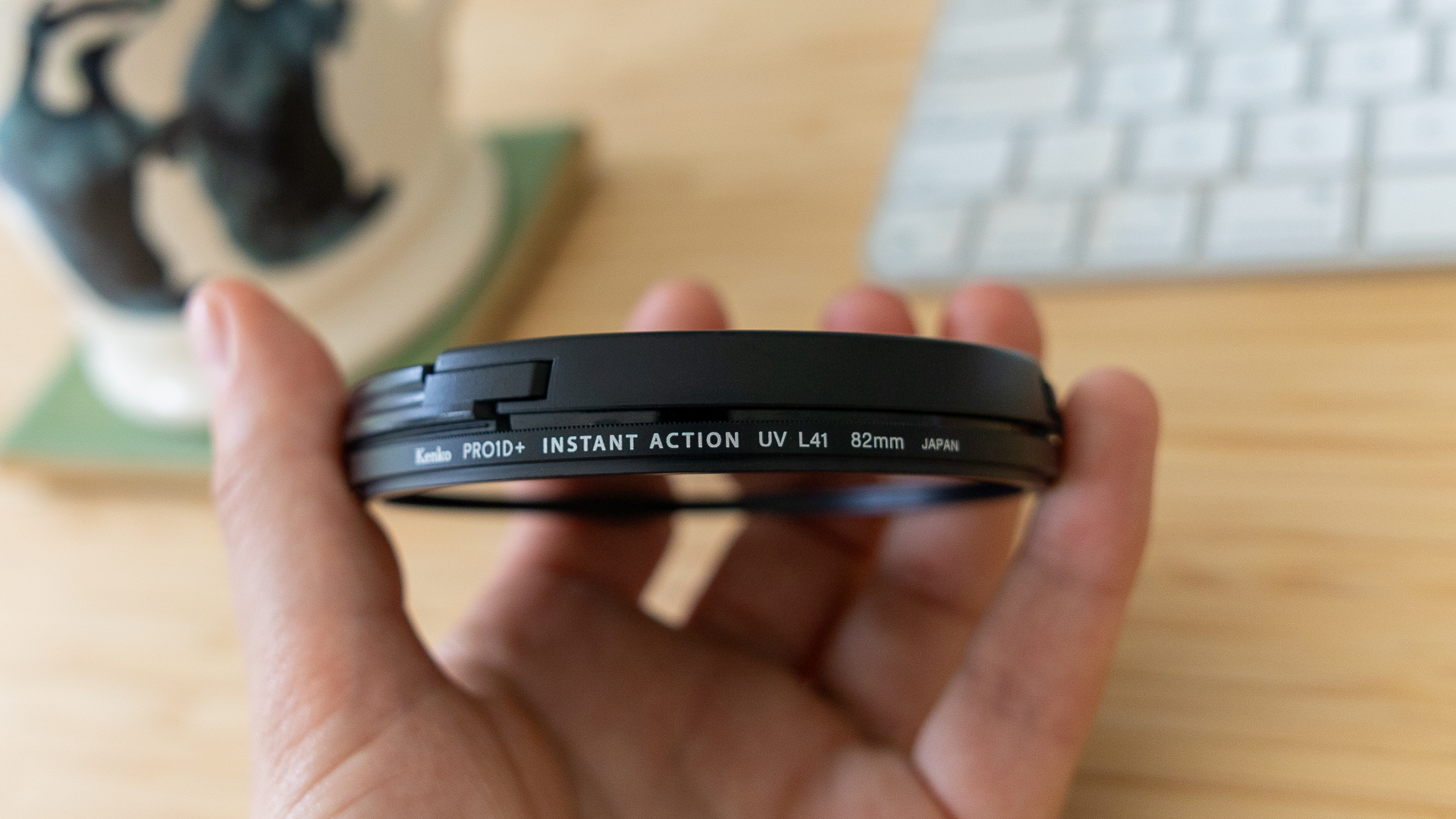
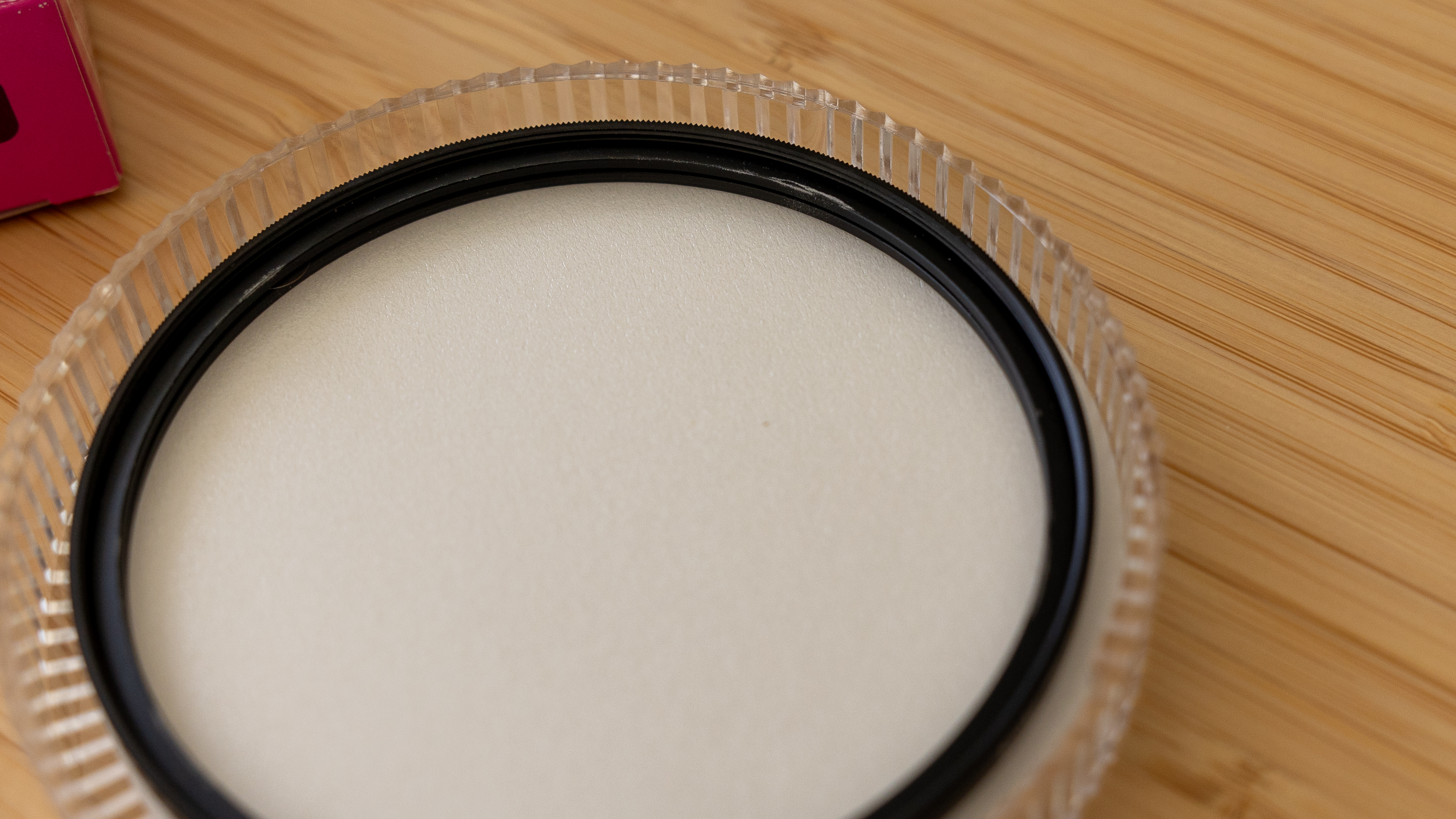
That's where my praise for the design ends, however. Kenko states that you should be able to attach "common" lens caps to the UV filter so that you don't have to take it off every time your camera goes in your bag. In theory, you can add a lens cap (see above) but I found that doing this would cause the whole filter to slide off the magnetic adapter ring in my bag, leaving my lens completely uncovered and unprotected. During testing, I also noticed that small marks had appeared on the inside ring of the filter, which had been caused by friction from my lens cap. It's a standard Canon product, so it feels unfortunate this happened, and something that most users will experience.
I also want to moan about the cheap plastic case that Kenko gives you to protect the Pro1D+ filters. Despite having nothing heavy to press on it in my camera bag, I noticed a large crack across the case after a few days of use. And because the foam padding inside is flimsy and thin, the filter rattled around inside it too. I'd have preferred thicker padding, and a tighter container size to avoid it moving around.
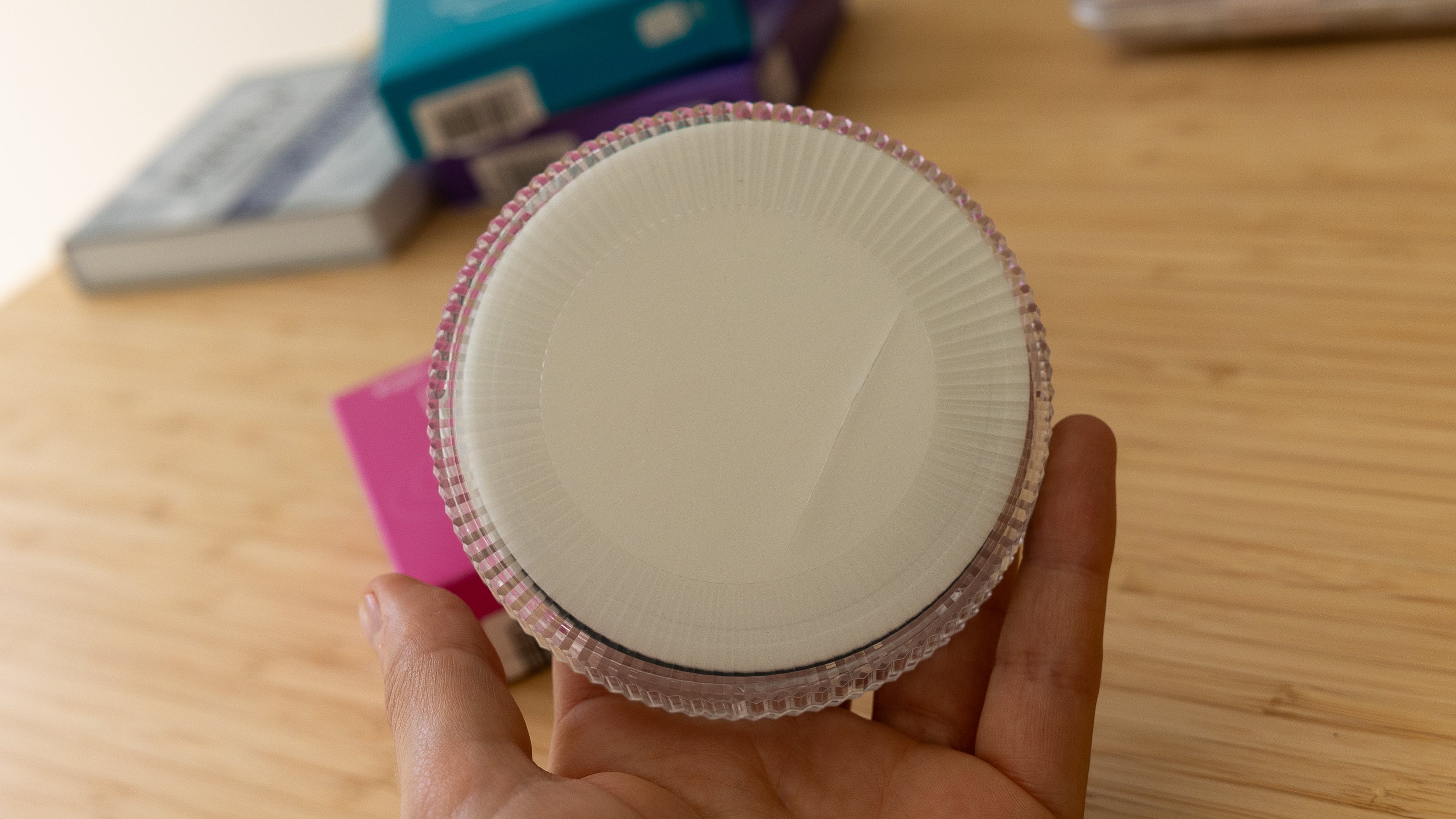
Kenko Pro1D+ UV filter: Performance
Given that, in many cases, a UV filter is designed to be left on and forgotten about, I'm pleased to report that I noticed no overall reduction in image quality, no loss of sharpness, and no intentional flares or aberrations when using the Kenko Pro1D+ UV filter.
Generally speaking, it's hard to tell the difference in image quality when using a UV filter (although you'll probably be able to if you're using a very cheap one). I couldn’t notice any major changes to sharpness with and without the filter.
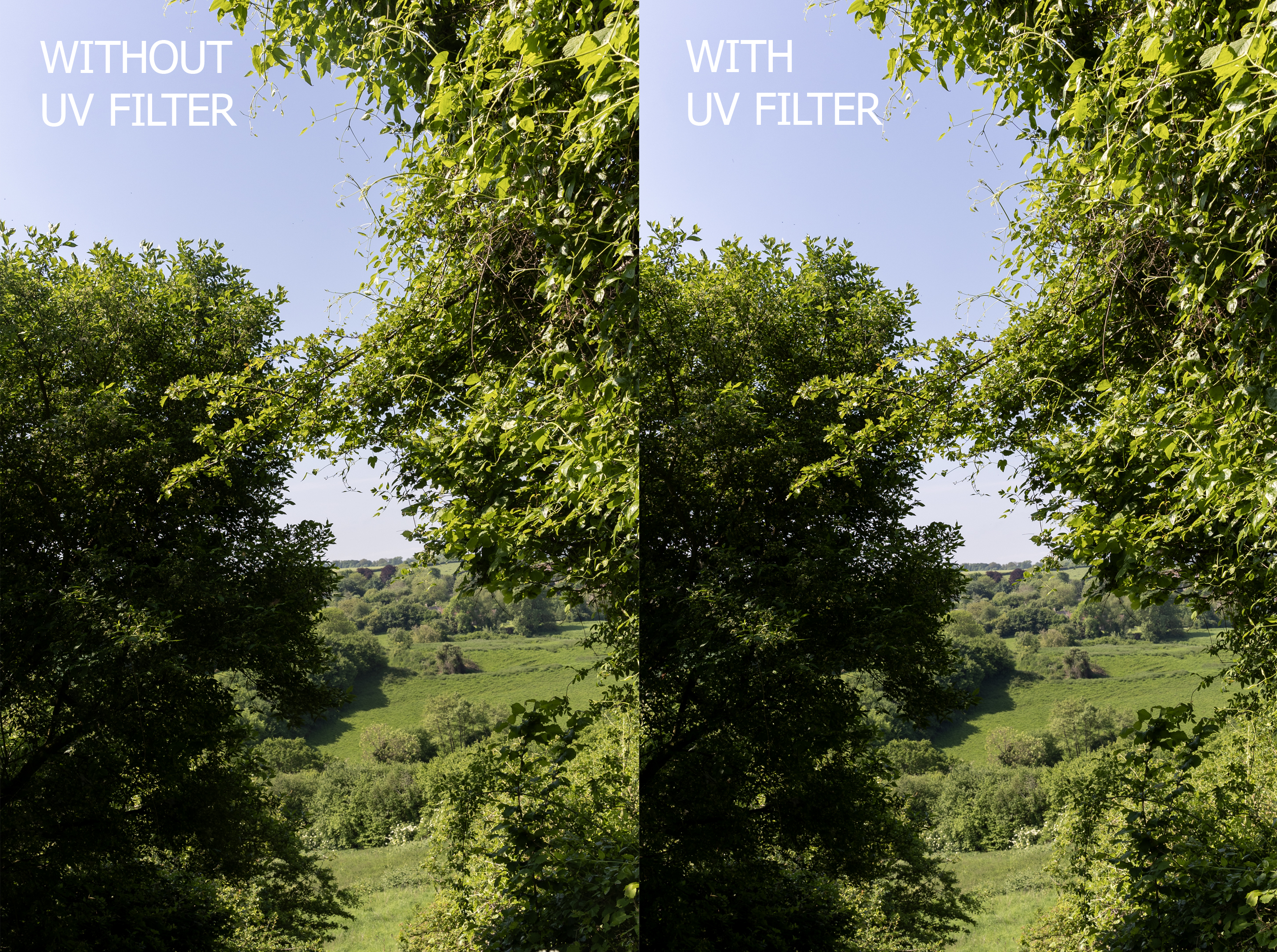
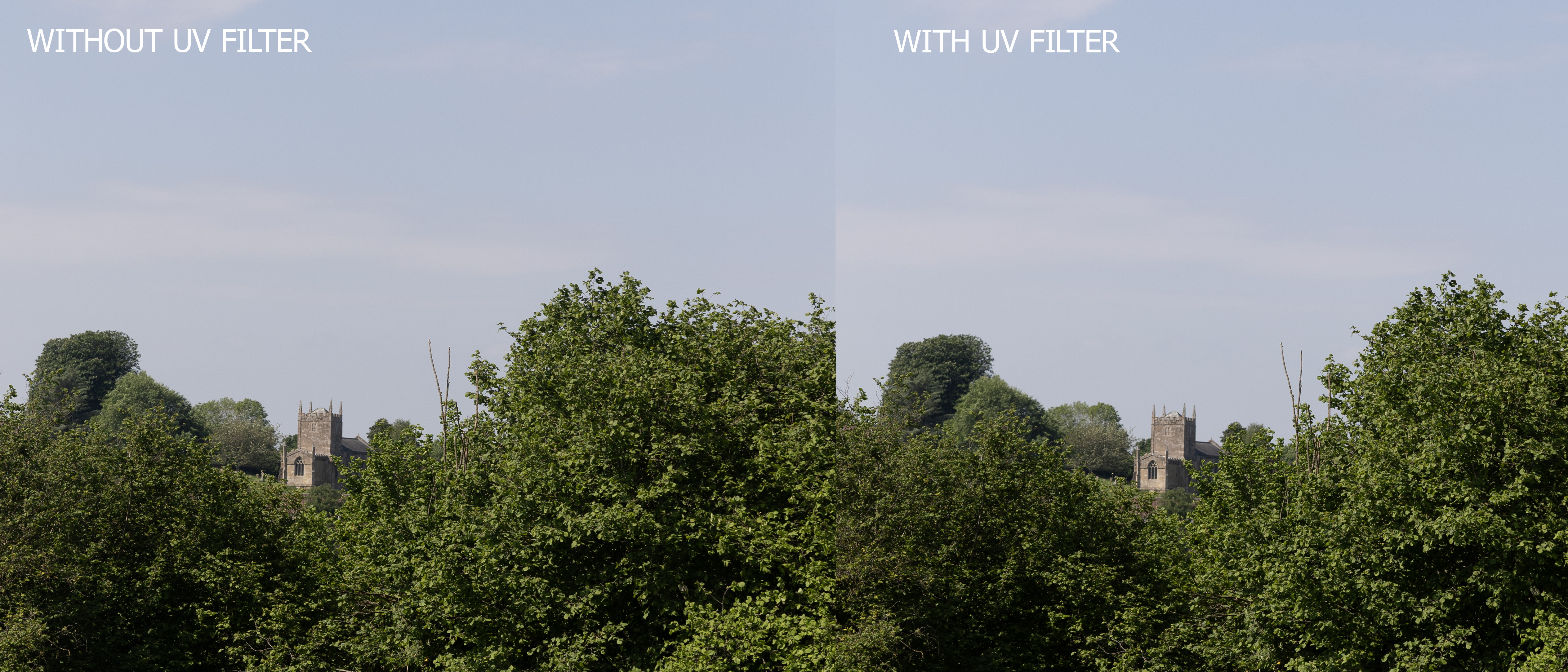
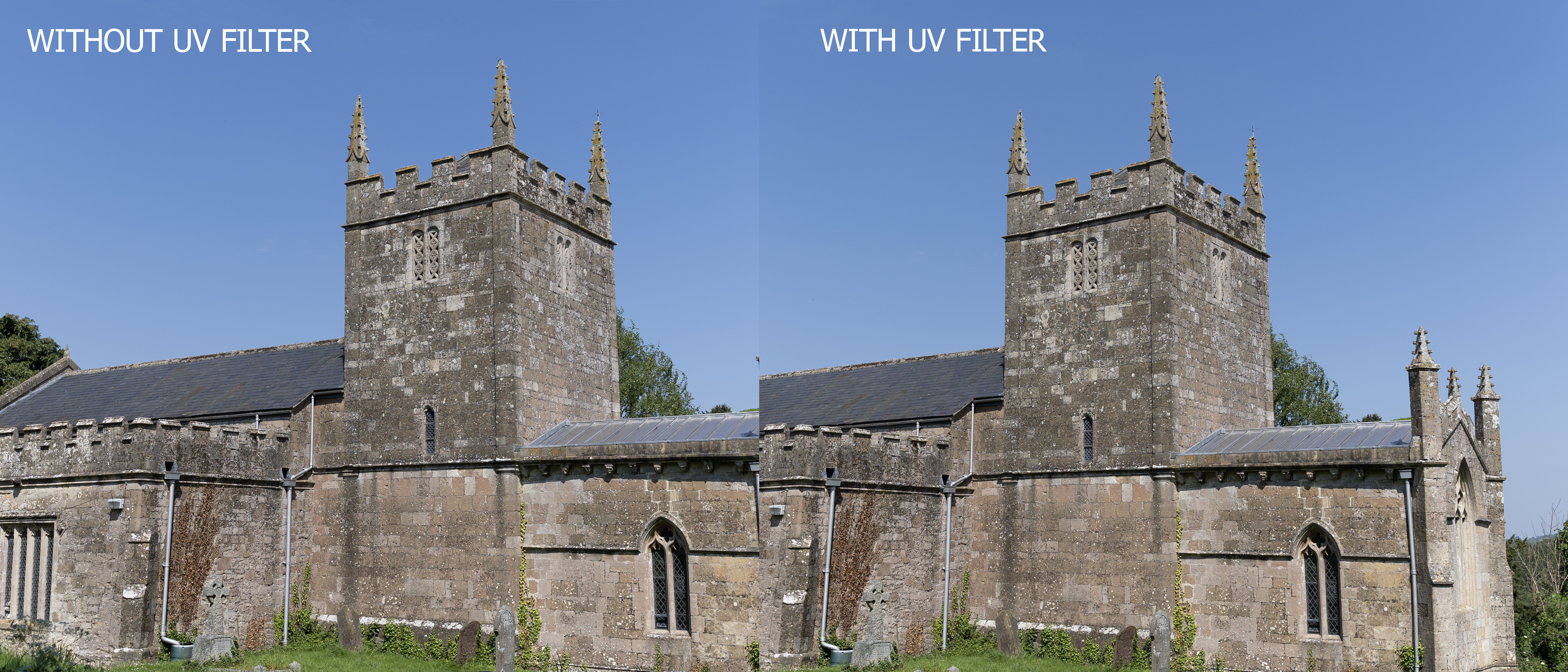
I used the filter for several weeks and captured plenty of test shots in bright sunshine. If I’d been shooting in a very hazy environment I would have seen some improved clarity. But in reality, the images look identical to my eye.
That’s not necessarily a bad thing. After all, most photographers will use a UV filter as a protective barrier between the environment and your lens. Especially in dusty, sandy, or windy spots. So if the filter has no discernible effect on image quality, so much the better.
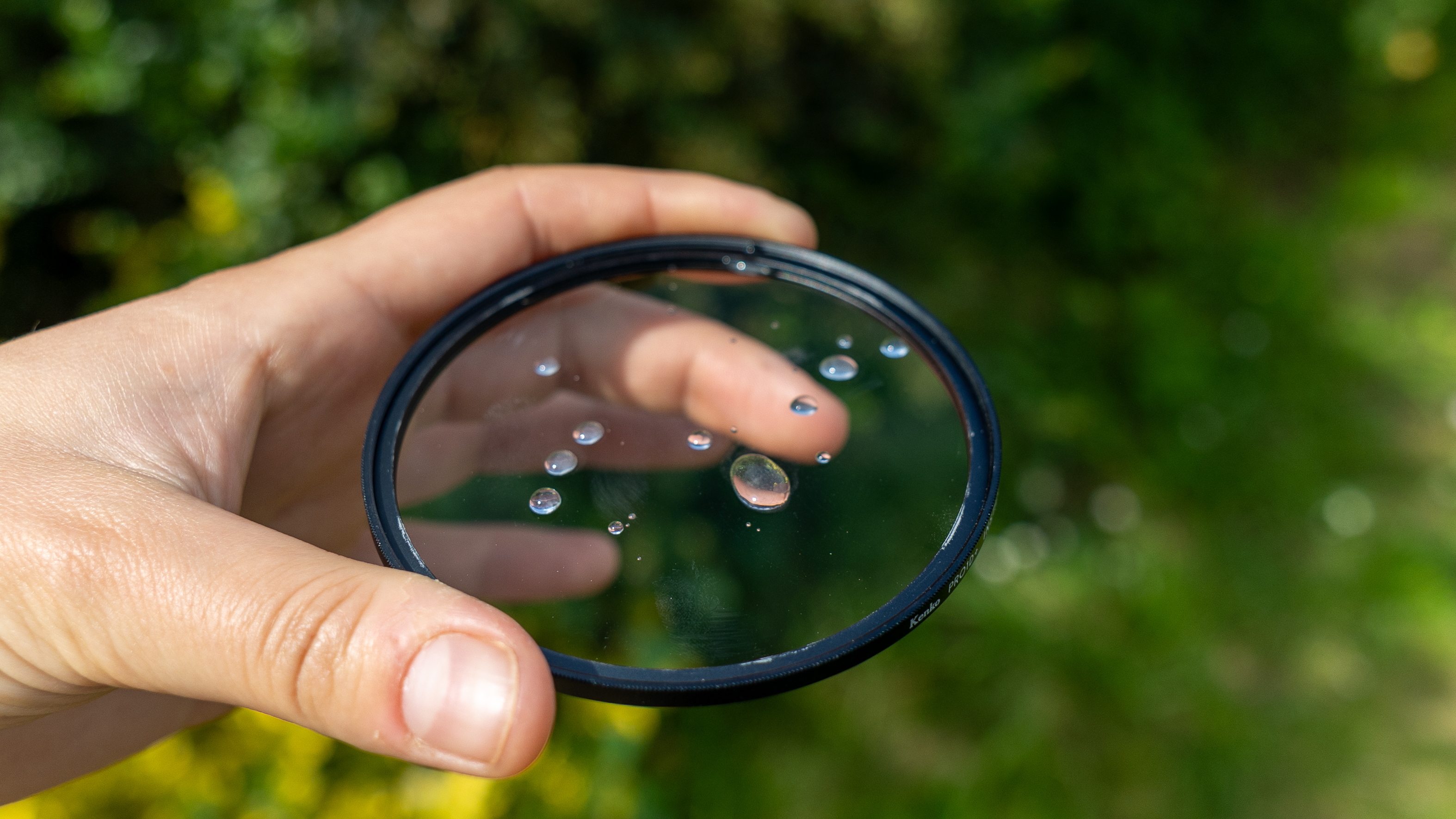
As for the filter's water-repellent coating, I tested this with drops of water and was disappointed to see that they’d left smeary marks on the lens, rather than running off completely clear. I don’t know how the anti-stain coating works, but I'm not convinced it'd be effective in heavy rain.
Apart from that minor pain point, I found the Pro1D+ UV filter easy to use on a landscape shoot when I wanted to keep switching up my filters or adding a polarizer. But when I know I’ll keep a UV filter on for long periods (and don’t want it to slip off in my bag) I’ll probably stick to my dependable screw-in Urth UV filter.
Kenko Pro1D+ UV filter: Verdict
Optically, the Kenko Pro1D+ UV filter is a great bit of glass that keeps your image sharpness and color balance completely pristine. However, I found its design to be somewhat less reliable than screw-in UV filters, as it kept coming off the magnetic adapter in my camera bag when my lens cap was attached.
It's a shame that the concept isn't quite there yet, because it's very quick and easy to use Kenko's magnetic system and stack other filters in the Pro1D+ range together to tweak your landscape photography in the field. If you want an affordable way into a range of filters and plan to use the whole Pro1D+ lineup, swapping them in or out regularly, then Kenko's Instant Action filters are a good way to go. If you're just looking for a UV filter to protect, and crucially stay on your lens, I think there are less frustrating options out there.
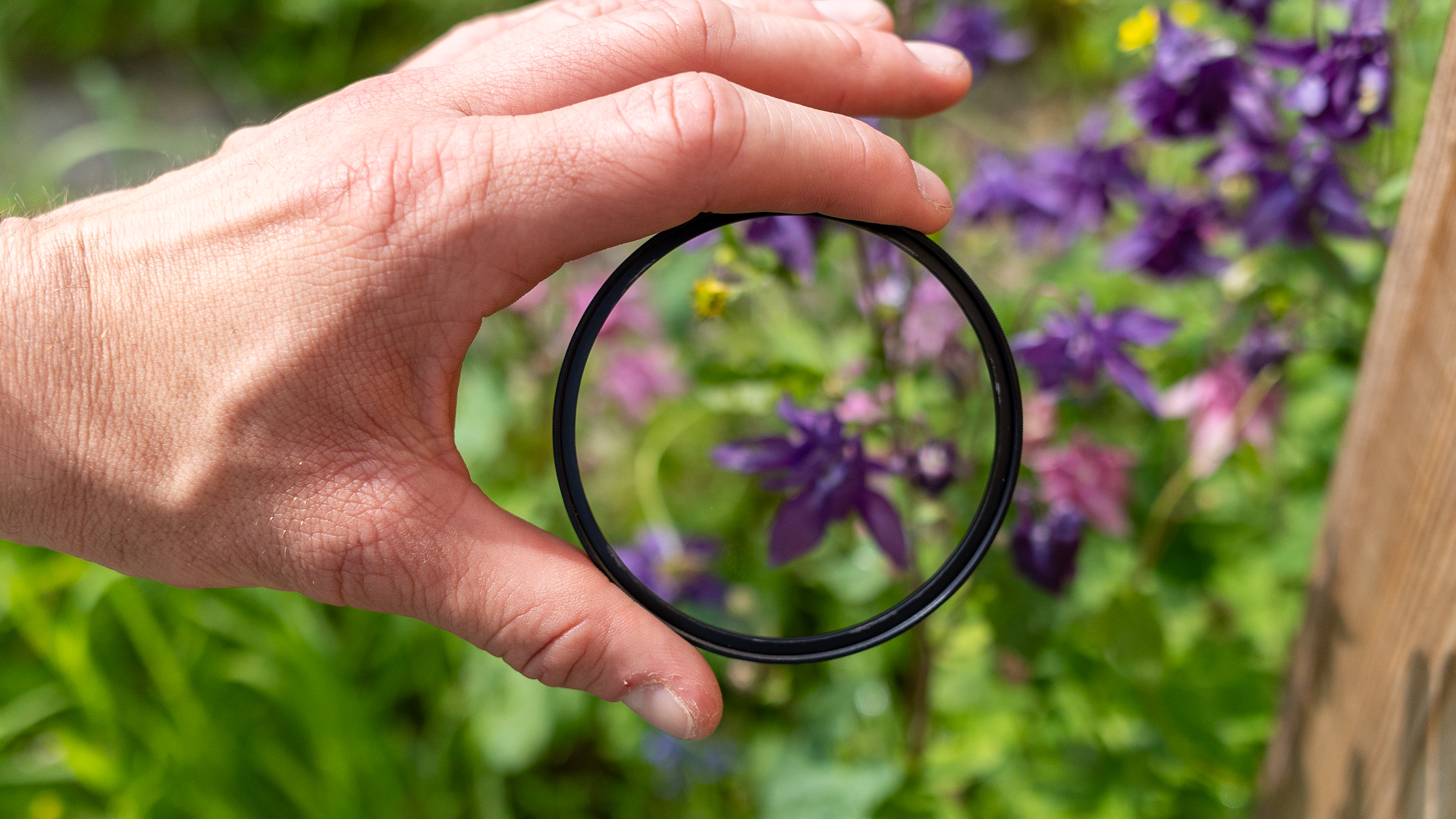
✅ Buy this if...
- You have other Pro1D+ filters or plan to buy into the Instant Action range.
- You want to be able to take your UV filter on and off instantly.
🚫 Don't buy this if...
- You need a budget option and don't do much outdoor photography.
- You're looking for a UV filter to screw onto a lens and forget about.
Kenko Pro1D+ UV filter: Alternatives
Urth Magnetic UV lens filter (Plus+)
Urth's Magnetic UV filter suffers similar issues to the Kenko Pro1D+ here, in that the magnets are weak and the filters come off the lens easily. However, they're also threaded for greater versatility and offer supreme image quality.
Kenko AIR II UV filter
If you're after a very cheap UV filter that protects your lens, Kenko's screw-on AIR II UV filters are the way to go. But bear in mind they don't have the water-repellent or anti-reflection properties of the Kenko Pro1D+.

Lauren is a writer, reviewer, and photographer with ten years of experience in the camera industry. She's the former Managing Editor of Digital Camera World, and previously served as Editor of Digital Photographer magazine, Technique editor for PhotoPlus: The Canon Magazine, and Deputy Editor of our sister publication, Digital Camera Magazine. An experienced journalist and freelance photographer, Lauren also has bylines at Tech Radar, Space.com, Canon Europe, PCGamesN, T3, Stuff, and British Airways' in-flight magazine. When she's not testing gear for DCW, she's probably in the kitchen testing yet another new curry recipe or walking in the Cotswolds with her Flat-coated Retriever.
